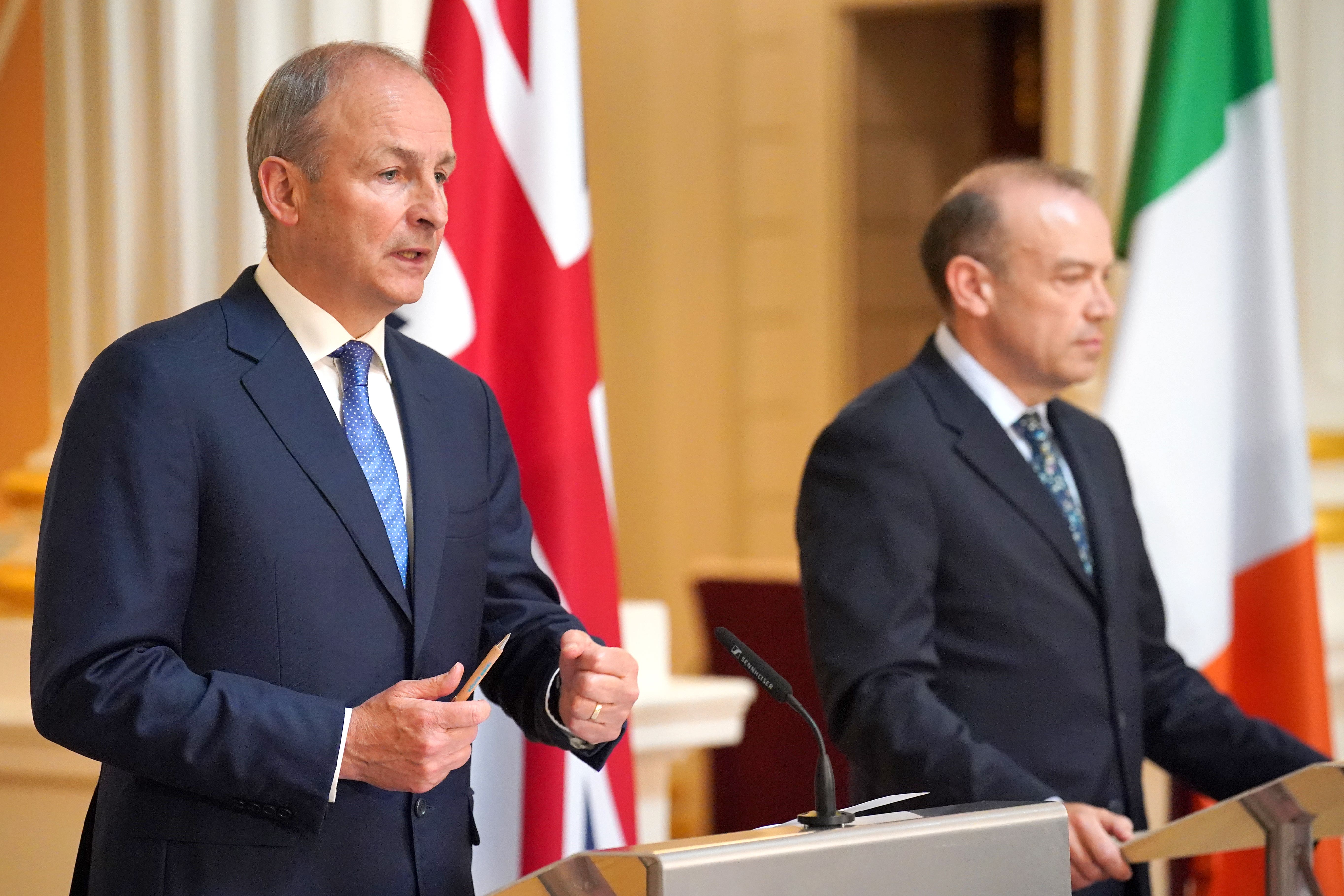‘No running commentary’ on efforts to restore Stormont – NI Secretary
The Northern Ireland Secretary stressed the importance of privacy to any negotiations to restore powersharing.

The Northern Ireland Secretary stressed the importance of privacy to any negotiations to restore powersharing, as he declined to give a “running commentary” on talks with the DUP.
It comes amid ongoing efforts to restore Stormont, with the Democratic Unionist Party (DUP) still refusing to re-enter the Executive despite the Windsor Framework – agreed between the UK and the EU earlier this year – making a number of changes to post-Brexit trading arrangements.
The DUP is blocking the devolved institutions in Belfast in a protest against the Northern Ireland Protocol and the party has insisted it will not return to Stormont until it secures further legislative assurances from the UK Government around sovereignty and trade.
A meeting of the British-Irish Intergovernmental Conference took place in central London on Monday, with both governments making renewed pledges to restore governance in the region.
A joint communique, issued after the meeting at the Mansion House, said that politicians “discussed the serious and deepening consequences for people in Northern Ireland arising from the ongoing absence of fully functioning institutions”.
“I engage regularly with all political parties in Northern Ireland, including the DUP,” Mr Heaton-Harris told reporters.
But declining to comment further, he said he would not be giving a “running commentary”.
“When it came to the Windsor Framework, I think I learned the lesson that the best place for negotiations on such an important issue are done in private.”
Both governments continue to disagree over the UK’s legacy Bill, which proposes an offer of immunity from prosecution for perpetrators of crimes during the Troubles who co-operate with a truth-recovery body.
It is vocally opposed by victims’ groups and political parties in Northern Ireland, and Tanaiste Micheal Martin said that Irish concerns remain.
The Fianna Fail leader said that the Government had “fundamental concerns about legislation before parliament”, insisting that the best approach was the “two governments working collectively together with the parties in Northern Ireland”.
But he played down any prospect of the Government bringing a case to the European Court of Human Rights over the Bill, calling any suggestions “premature”.
Mr Heaton-Harris insisted that the UK Government would “continue with the legacy Bill”.
He said that recent amendments had improved the Bill, adding: “I will be able to say, I am assured, have had assurances, that this does fulfil all the requirements under our international obligations.”
Bookmark popover
Removed from bookmarks